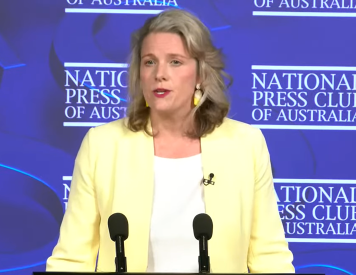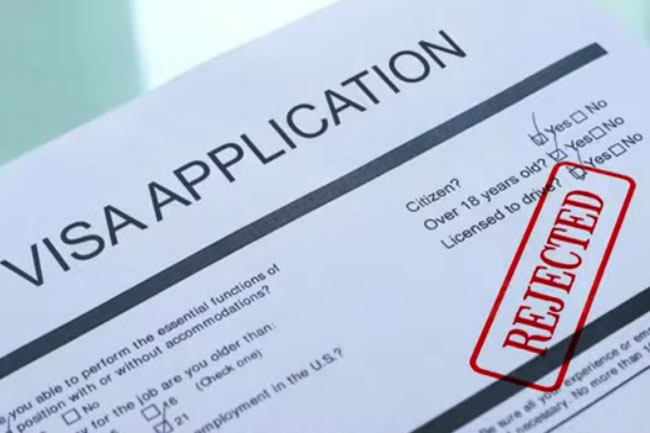Australia, Canada and the United Kingdom experienced a boom in overseas students after the pandemic which has led them to tighten policy, mainly to reduce record levels of net migration.
But their approaches to student policy tightening have been quite different.
The booms were due to very similar factors:
- International education providers desperate to recover their finances after the restrictions in recruiting new students during COVID;
- COVID era policy settings that sought to retain students who were already in the country and attract more students once borders opened up;
- Massive economic and budget stimulus during COVID led to unprecedented labour shortages as these nations opened their borders after COVID.
United Kingdom's poor policy
UK student visa grants reached nearly 490,000 in 2022, an 81% increase over pre-pandemic levels and a 29% increase on the previous year. Lobby group Universities UK issued a report celebrating a massive net economic contribution from overseas students.
The boom in students, including student dependents, led to a rapid increase in net migration to the UK to 745,000 in 2022, setting off panic in the UK Government and tightening of immigration policy. As a result, net migration for the 12 months to June 2023 fell to 672,000.
In May of 2023, former Home Secretary Suella Braverman announced that only international postgrad students on research courses would be allowed to bring family members with them.
In the 12 months before June 2019, dependants accounted for 6% of non-EU student immigration. That rose to 25% in June 2023. In the 12 months to June 2019, dependants accounted for 37% of non-EU work immigration, rising to 48% in June 2023.
The new rule came into force from January 2024. But the signals from the UK Government set off a rapid decline in overseas students to the UK. For the academic year starting January 2024:
- Overall deposit payments to UK education providers are down 52% compared to January 2023.
- Confirmation of acceptance for studies is down 64%.
- Visa issuance is down 71%.
The surge in overseas students in 2021 and 2022 and then the rapid decline is putting many UK universities into severe financial stress. A poor policy outcome.
Moreover, the UK approach is not about attracting the brightest and best students (apart from those doing post-graduate research degrees) but attracting those who don’t have dependents or are prepared to be separated from their dependents. Yet again, poor policy.
Canada's missteps
After a 17% decline in study permits in 2020 to 528,190, there was an increase in 2021 to 621,565 and to 807,150 in 2022. It is likely to have increased further in 2023.
On 24 January 2024, the Canadian Minister for Immigration, Refugees and Citizenship said:
The integrity of the international student system has been threatened. Some institutions have significantly increased their intakes to drive revenues, and more students have been arriving in Canada without the proper supports they need to succeed. Rapid increases in the number of international students arriving in Canada also puts pressure on housing, health care and other services. As we work to better protect international students from bad actors and support sustainable population growth in Canada, the government is moving forward with measures to stabilise the number of international students in Canada.
After re-imposing restricted work rights, the Minister also announced:
Canada will set an intake cap on international student permit applications to stabilise new growth for a period of two years. For 2024, the cap is expected to result in approximately 360,000 approved study permits, a decrease of 35% from 2023. In the spirit of fairness, individual provincial and territorial caps have been established, weighted by population, which will result in much more significant decreases in provinces where the international student population has seen the most unsustainable growth. Study permit renewals will not be impacted. Those pursuing master’s and doctoral degrees, and elementary and secondary education are not included in the cap. Current study permit holders will not be affected.
In essence, the Government of Canada has dumped the complex and controversial role of determining study permit allocations to individual education providers to the provinces and territories. They will each need to develop a process for doing this by the end of March 2024.
This process if to be in place for two years during which the Canadian Government will:
Continue to work with provinces and territories, designated learning institutions and national education stakeholders on developing a sustainable path forward for international students, including finalizing a recognized institution framework, determining long-term sustainable levels of international students and ensuring post-secondary institutions are able to provide adequate levels of student housing.
The problem with this temporary approach will become manifest very soon as each province and territory rushes to come up with its own process for prioritising education providers and students leading to mass confusion in the market.
If the Federal Government is concerned there are "bad actors" in the system, it should be targeting those for policy and/or prosecutorial action rather than leaving this to the provinces/territories. This approach will inevitably lead to these "bad actors" targeting the provinces and territories with the weakest processes. It will also lead to a system where poorly performing students may have just as much chance of receiving a study permit as high-performing students, hardly a case of trying to attract the brightest and best.
Australia’s approach
Compared to the dramatic approaches taken in the UK and Canada, the Australian Government has taken a much more gradual approach introducing a range of student policy tightening in the second half of 2023. While these measures generally have merit, they have to date had little impact in slowing the rate of offshore student visa applications which continued to set all-time records to November 2023.
To slow the rate of student arrivals, the Government has cranked up student visa refusals using highly subjective criteria. In 2023-24, Australia will set a record in the number of students refused a visa, particularly in the October-December period of 2023. But very high rates of visa refusals are usually an indicator of poor visa design and excessive use of subjective criteria. The approach is unsustainable in the longer term as it wastes the resources of applicants, education providers and visa processing operations.
Moreover, the risk is that if the rate of refusals is not high enough and net migration does not fall as forecast, the Government will be under pressure to take more panicked measures such as a student visa cap.
The Government needs urgently to go back to the drawing board and come up with objective criteria that will both reduce the volume of student visa applications while encouraging the highest performing students.
Dr Abul Rizvi is an Independent Australia columnist and a former Deputy Secretary of the Department of Immigration. You can follow Abul on Twitter @RizviAbul.
Related Articles
- The Australian Government's shameful exploitation of international students
- The struggle of being an international medical student in Australia
 This work is licensed under a Creative Commons Attribution-NonCommercial-NoDerivs 3.0 Australia License
This work is licensed under a Creative Commons Attribution-NonCommercial-NoDerivs 3.0 Australia License
Support independent journalism Subscribe to IA.














